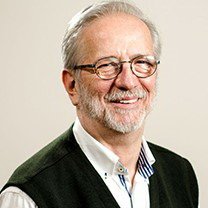
Emre Konuk
Institute of Behavioral Sciences (DBE) Founder President
As agraduate of Istanbul University, Department of Psychology, Konuk received his Master’s Degree in Clinical Psychologyfrom Boğaziçi University Psychology Department. He did her Family Therapy training at the Mental Research Institute, Palo Alto, California. At the same institute, in Brief Therapy Center he worked as a therapist. He founded the DBE (Behavioral Sciences Institute) in 1985, and founded the Institutional Development Center in 1998 in İstanbul.
He served as the President of the Istanbul Branch of the Turkish Psychological Association and served on the Board of Directors. Konuk continues his work as the founder president of the DBE Behavioral Sciences Institute, psychotherapist and management consultant. Inaddition, Konuk is still the Chairman of the Board of EMDR Association and the Vice President of Couple and Family Therapy Association (ÇATED).
His studies are based on the Cognitive Behavioral and Family Therapy Model. EMDR technique and trauma intervention method make an important contribution to Konuk’s studies. As the President of the EMDR Association, he took an active role in providing psychotherapy support to the victims with EMDR Trauma Recovery Group Volunteers in collective traumas such as natural disasters and terrorism in our country in recent years.
Emre Konuk
Traumatic Stress, Mental Health, and Medical Illness: Towards a New Paradigm
Situation
Services of treatment often require high-cost services aimed at eliminating the negative consequences of diseases. This is also true for Psychological and Psychiatric problems. In short, when processes that can be considered as “normal difficulties of life” are not intervened in a timely manner, we encounter them as “mental illness” or “medical disease”. Now everything will be very costly.
The relationship between negative life events (traumatic processes) in the family and Psychological and Psychiatric problems is a good example of it. In traumatic processes, there is a substantial body of literature emphasizing the causal link between psychological problems and mental illness.
In this presentation, the literature will be summarized in order to protect and improve the physical and mental health of individuals, and to allocate more resources for health, and the “paradigm change” that we need to realize in the field of mental health as a developing country will be emphasized.
Traumatic Experience, Family and Illnesses
When the mental health literature is researched, we see that psychiatric and psychological problems are mostly caused by negative life events (traumatic experiences) experienced in the past, especially in childhood and adolescence. While this is an expected result, what surprising is that there is a strong and direct proportional causality in the relationship between the frequency and level of traumatic experiences in childhood and many physical-medical diseases in later years.
Protective and Preventive Health Service: Towards a New Paradigm
The gap in the Mental Health Service in our country is huge and growing every year. Psychologists, Psychological Counselors, Family and Couple Therapists, Family Counselors, Social Workers, and Psychological Counselors provide the majority (95%) of mental health services in Europe and the USA. The shortage of specialists providing mental health services in our country is approximately 300,000. In addition, population growth is approximately 1,000,000 per year.
In this area, family-focused interventions and policies to be made with the understanding of ‘protective and preventive health care’ and community-focused interventions with very low costs will allow much more funds to be allocated to the health system. In particular, the duration of psychotherapy training has been shortened and their efficiency has increased a lot. With good planning, the gap in our country can be closed in a relatively short time.
Let’s suppose the tradition of ‘preventive intervention’ developed before people got sick, rather than after they got sick. Let’s imagine that the leading decision makers in the field of health, such as the Ministry of Health, Family and National Education, Universities, and Municipalities came together and developed a comprehensive project. Even if it was limited only to mental health, a brand new model and paradigm would emerge in the world.
